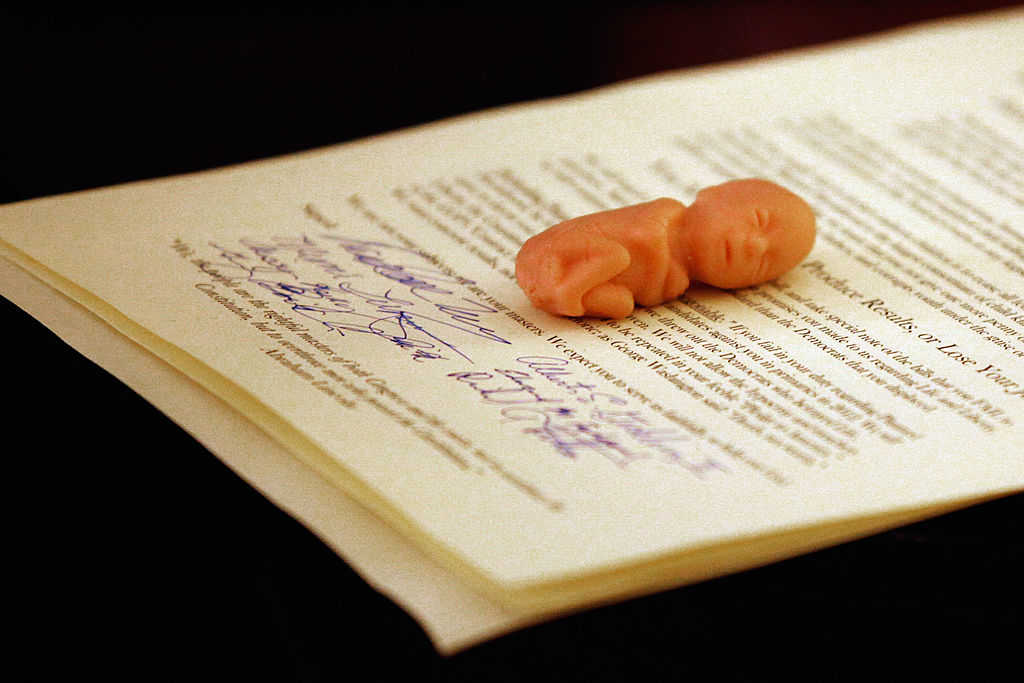A new study has found that some women who have had an abortion face “deep feelings of loss, existential concerns, and declines in quality of life” after the procedure.
READ: The Key Arguments That There IS Life After Death
Feelings of shame, regret, guilt, anxiety, depression and self-destrictive behaviors are just some of the negatives that were found when researchers surveyed 987 post-abortive women for a study published by the Journal of American Physicians and Surgeons.
Those behind the study titled, “Women Who Sufered Emotionally from Abortion: A Qualitative Synthesis of Their Experiences,” are hoping that the data will help bolster efforts to provide counseling both before and after abortions.
The study, which was conducted in 2012 and 2013, involved anonymous, online interviews with 987 women between the ages of 20 and 72 who had at least one past abortion.
The majority of these women had contacted a crisis pregnancy center to find out about post-abortive care. In the survey, they shared the positives and negatives of their abortion experiences with the researchers.
What’s perhaps most notable is that many faced some psychological fallout after their abortions.
While only 13 percent reported visiting a counselor, psychology or psychiatrist before their abortion, 67.5 percent sought such services afterward. Meanwhile, just 6.6 percent used prescription drugs for psychological health before their abortion, with 51 percent using such drugs after their first procedure.
The women also shared their reasons for aborting, with 58.3 percent saying that they did it to make others happy and 28.4 percent doing it out of fear of losing their significant others.
Nearly half — 49.2 percent — believed that the unborn baby was a human being at the time of their abortion.
And, remarkably, 33.2 percent said that they felt emotionally connected to their unborn child before the procedure, with 66 percent explaining that they “knew in their hearts that they were making a mistake when they underwent the abortion.”
“I was very depressed for years after the abortion. I believe that the depression contributed to me losing a lucrative pharmaceutical job,” one woman shared. “I did not work for 2 years after the abortion and I did not have the energy to do much of anything. It took me about 3 years to just get motivated to start living somewhat of a fulfilling life again.”
Others discussed the impact of their realization that they “took a life,” with 23.7 percent lamenting this as one of the main negatives that came out of their experience.
“My child is dead and by my own choice. I spent years of anger, shame, and grief. It damaged my relationship with my husband, my children, and my God,” another woman said. “For 30 years I did not speak of it to anyone but my husband. My grief overwhelmed him and left him powerless and ashamed. For years I cried every Sunday in church, experienced dark depressions, thoughts of suicide, and flashes of anger. My relationship with my children was unbalanced.”
The study concluded by noting that the women in the study as well as the results “cannot be generalized to the average woman seeking an abortion in the U.S.,” as these participants expressed significant disruption in their emotional and psychological status and sought help. Still, the results are telling and do show that some women are negatively impacted after the procedure.
“Even in an ideal environment wherein women receive adequate counseling, are offered support to continue their pregnancies, and do not present with established risk factors, it is still possible to be blindsided by an abortion and suffer ill effects due to the inherent complexity of abortion,” the study concluded.
The text continued, “Future research should examine the psychological trajectories (positive and negative) of women who felt they received sensitive pre-abortion counseling, were supported had they chosen to give birth, and believed the abortion was the right decision to those who felt the pre-abortion counseling was inadequate, supports were lacking, and their decisions were a mistake.”



